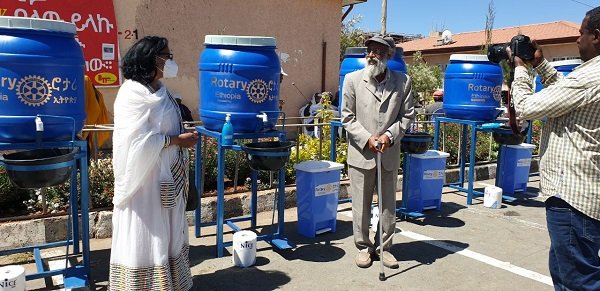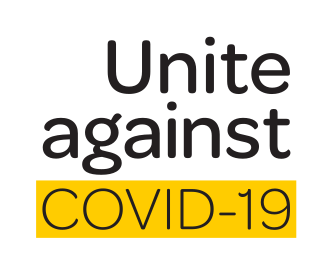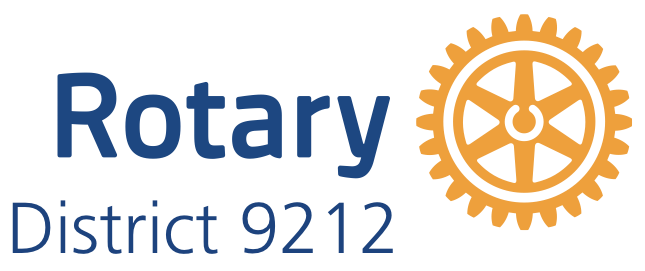Rotary Ethiopia INTENSIFYING efforts towards the COVID-19 response

As the COVID-19 pandemic spreads uncertainty and hardship around the world, Rotary members and participants continue to innovate, care for those affected, and showing that even at a distance, there are ways to help. Fighting disease is one of Rotary’s main causes, so members already support efforts to promote proper handwashing techniques, teach people other ways to stay healthy, and supply training and vital medical equipment to health care providers.
As people of action, the Rotary Foundation offered several options that Rotarians can use to help care for and protect people in their own communities and others around the world. One of them is a District Grant of up to $25,000. Disaster response grants are funded by the Rotary Disaster Response Fund to help districts around the world respond to disasters.
To this end, Rotary District 9212, under the leadership of District Governor Joe Otin, has successfully secured a $25,000 Grant for the COVID-19 Response.
It’s against this background that Rotary Ethiopia has stepped up its efforts in support of the national efforts in the COVID-19 Response. It has set up a 7 member Rotary Ethiopia Task Force constituting of Senior Rotarians and chaired by Rotary Ethiopia Country Chairperson. The Task Force has 4 Advisors who are professional medical personnel with credible knowledge and experience within the Health Management area. The Task Force is also privileged to have Past District Governor Teshome and Immediate Past Country Chair Azeb who are the Chair and Vice Chair of the Officially Registered Rotary Ethiopia respectively. The task force cannot do without their unreserved support.
“… The enormity of the challenges that must be tackled to combat the COVID-19 is requiring better organization, effective designing of our interventions and systemic approach to solutions, among others. The need for coordination with the target beneficiaries and national and global endeavors is of paramount importance to make deliveries relevant, quick, impactful and sustainable… Mulunesh Tennagashaw .”
Considering how small Rotary is in Ethiopia with only 1,000 members equally shared between 21 and 15 members in each Rotary and Rotaract clubs for a population of nearly 115 million, we had to set out our focus area and chose our most able and responsive partners right from the beginning.
We decided to do what we can in protecting and supporting the national health service as our area of focus and the Ministry of Health, Ministry of Peace and the local representative office WHO as our front line partners. Our strategy is not only to protect them but also to equip them with the technical pre-requisites they need to effectively meet the massive demand.
We envisioned drawing funding from contributions by Rotarians and friends of Rotary, accessing redirected club resources, trying to secure disaster response funds from The Rotary Foundation, and seeking partnerships with individuals and their institutions in the Diaspora.
While potential exist in almost all the targeted sources, the most effective and fast available has been from our own club resources however small it may be. So far, we have been able to raise about Birr. 375,000 with which we could purchase critical items like sanitary equipment and start-up supplies for a big home for the elderly and mentally disabled in Addis Ababa.
We have ordered 2,500 pieces of face shields, 30 sets of immediately needed scrubs for professionals in a COVID-19 specialized hospital and 10 three-thousand-liters each water tankers for as many quarantine centers.
Our next plan is to press for supplying more scrubs and personal protective equipment for the health professionals in the front line, which are very limited in number, including those in the janitorial services who are highly exposed to the risk of being infected themselves.
High in this list of urgent technical pre-requisites are more scrubs and PPEs, test kits, and more water storage tankers. We also see an urgent need of installing simple mechanical tools to hand washing stations already supplied by different parties that use manual dispensation of water and detergents that have proven more contaminating than sanitizing.
This contribution does not, in any way, match the demand posed by this crisis.
However, as Rotarians with a mission of Service above Self, we have the urge to provide as much support as we can.
Article by: Rtn. Mulunesh Tennagashaw || Rotary Ethiopia Country Chair




